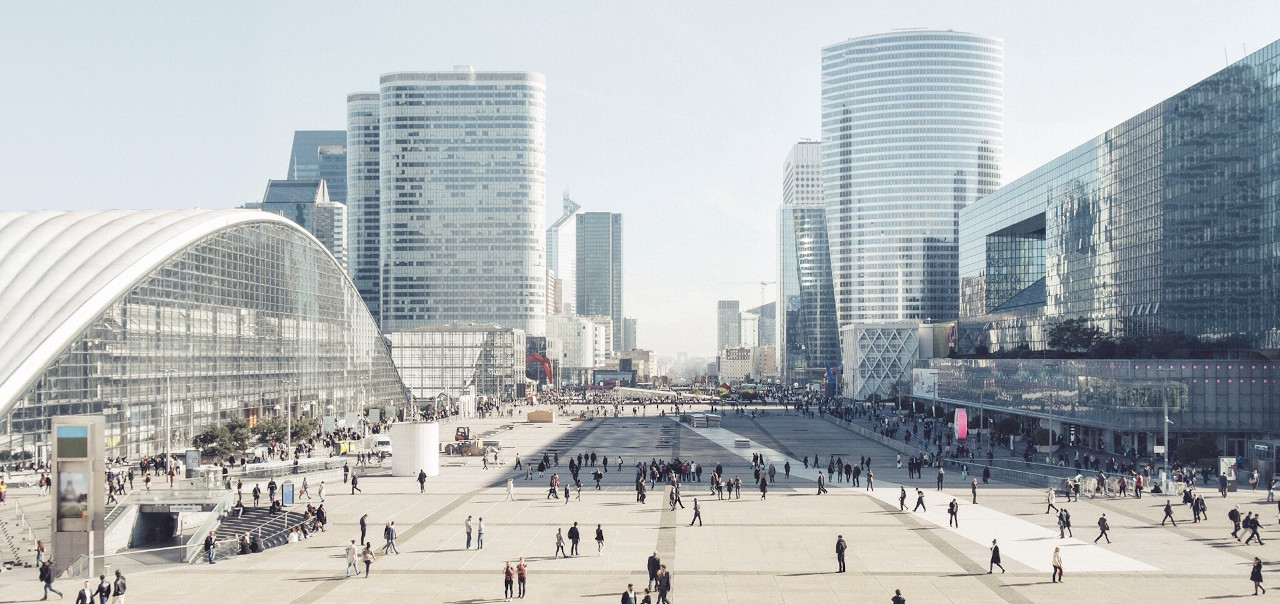
Elections, public health and democratic health
Everything’s changing. It is evident that the crisis we are going through will entail change. However, the issue at stake is not the change itself, which is a given, but rather its scope and consequences. We should not forget that it would not be the first time that the changes caused by crises have ultimately alleviated prior defects, unresolved issues in our society which have later become well-established good practices.
In the case of electoral processes, the profound change has already occurred.
According to International IDEA (1), a large number of the elections scheduled around the world have been postponed. As of 20 April 2020, approximately 51 countries, states and territories had postponed them, while another 18 territories were maintaining their electoral processes or analysing the possibility of postponing them.
Delaying an election is a profound change and is no easy matter. In his article titled "Suspension of elections: an exceptional case" (2), Ángel J. Sánchez Navarro, Professor of Constitutional Law at the Law Faculty of the Complutense University, brilliantly explains how the Spanish electoral regulations do not envisage a “suspension” or “postponement” of elections that have been called. The Spanish Constitution does expressly provide for scenarios (...) that justify the declaration of states of alarm (...). Thus, the instrument for calling elections can also be used to overrule the holding of elections. An instrument that is based on an act of the Government of the nation for the declaration of the state of alarm.
But what are the consequences of delaying an election? In his article titled "Elections during pandemic COVID-19” (3), our contributor Javier García Colino points to some of the implications:
Different experts have spoken out about the fact that both “going ahead with an election [and] delaying an election both come with risks, not just to for public health, but to democracy” (Hollingsworth and Seo, 2020).
Toby James, a professor of politics and public policy at the University of East Anglia, declared that “intuitively, we think that postponing an election sounds anti-democratic, [...] but actually democracy in some ways could be undermined by holding an election in these times”.
In addition, “elections are necessary to keep the public’s trust, and to maintain the legitimacy of lawmaking” (Hollingsworth and Seo, 2020). For instance, in New South Wales, Australia, local government postponed local elections for a year, meaning politicians will stay in power for over 12 months more than they were supposed to. Sri Lanka technically has no parliament right now. Elections were called for the 25th of April. Though, cancellation on those elections has not come yet with a new date. They fell in a legal vacuum still to be solved.
In this environment, we enter fully the debate that interests us:
1.- There are obviously mechanisms to put off elections, as demonstrated by the number of elections postponed as of today, but there are legislative difficulties in many cases and it is essential to look for emergency elements, agreements between parties or alternatives that have been barely used before to justify the suspension via the administrative channel. There is no historical model.
2.- From a purely probabilistic standpoint, this postponement could, in certain cases, lead to anomalous situations affecting democratic normality, such as extensions of parliamentary terms, power vacuums and the setting of electoral restoration schedules with partisan goals, among many others. Some examples are the above-mentioned cases of the state of New South Wales and Sri Lanka.
At this point in time, the debate is not public health versus democratic health, including democratic health within a broad concept of democracy without restrictions caused by the impairment of voting conditions. One should not depend on the other, as there are mechanisms for the two to co-exist. South Korea has set the example in this regard, having held its elections on 15 April. Elections with more than 44 million registered voters and a turnout exceeding 65%.
In any event, we should not criticise the decisions to postpone elections made until now after being immersed in a world of doubts and without any points of reference. Now, once the crisis has begun to unfold and we know how it is taking shape, it is necessary for states and organisations to propose solutions to retain the democratic rights of their citizens while ensuring their health and safety in the implementing of said rights.
We should not regard this crisis situation as unique. Everything that happens may happen again or remain over time. Within this context, as a society and as citizens, we must learn to make choices within contexts different from the previous ones we were used to. The post-COVID phase may be lengthy and an intense electoral calendar is looming.
Leandro Querido recently published an interesting article in Infobae titled Elections, under the stress of the pandemic (4). In it he indicates that countries with robust electoral institutionality will be better placed to adapt to this new and complex scenario, which will not only affect the 2020 electoral calendar but also the one in 2021.
Let us therefore analyse what measures seem appropriate for holding electoral processes during this phase of the health crisis and, above all, in the following months, once the most difficult moments of the pandemic have (hopefully) passed.
A new scenario for the electoral process
Taking into account the preventive measures required, the new scenario for the electoral process must necessarily ensure two aspects, social distancing and protective barriers. It should attempt to prevent agglomerations of citizens while guaranteeing the necessary protective measures for voters and organisers.
In view of the above, the measures should focus on the following points:
- Digitalisation of processes, facilitating the remote realisation of the activities in the electoral cycle that can be achieved in this way.
- Review of the processes for which digitalisation is not feasible (or appropriate) in order to maintain the recommended distancing measures and sanitary barriers.
Both measures must necessarily be accompanied by two elements which, despite already playing a leading role in the pre-pandemic scenarios, must be reinforced and remain permanently implemented in the work areas of electoral bodies:
- Cybersecurity. This digital transformation will introduce vulnerabilities requiring a strategic approach to security so as to protect the integrity of elections.
- Communication. Communication is a strategic aspect of building trust in the organisation and promoting the transparency of the process. Two work areas take centre stage in this new scenario:
- The digital divide will necessarily lead to the design of communication initiatives to enable the majority of citizens to adopt the change.
- There will also be an urgent need to combat online disinformation (and fake news) with more information and transparency.
A communication plan, an electoral information portal and information and disinformation monitoring systems will be some of the tools to be used.
With the aim of encouraging greater technological leverage (digitalisation) to facilitate the essential processes, we list some alternatives that are currently available and operating successfully:
Promotion of postal voting.
Postal voting, as we know it today, is a process that is repeatedly described as bureaucratic, defective and expensive. Many studies recommend that it be developed and/or reformulated. In any event, in order to promote this form of voting as a measure to prevent concentrations of people on election day, there is a series of initiatives that simplify its bureaucracy, reduce its costs and increase its use.
- Enabling online applications to process requests to cast postal votes.
- Enabling online applications so that voters who request casting postal votes can print their ballot papers at home or in authorised places.
- Facilitating the sending (pre-payment) and establishment of secure and traceable physical channels for sending and receiving votes.
Promotion of online voting.
Many countries have declined to add this technology to their electoral systems, chiefly due to security problems and a lack of trust following some rather disappointing experiences. It is true that this practice has been maintained in some territories and it is currently common among professional associations, universities, trade unions, sports clubs and so on. Blockchain technology has greatly helped to increase confidence in online voting and as of today it is an alternative we should bear in mind.
Very few societies are regarded as ready to hold fully digital elections, although dismissing this technology for this reason alone does not seem appropriate. The competent bodies should study the options for the use of online voting, among which we should highlight the following:
- Party primaries. Online voting is the optimal platform for these kinds of elections.
- Voting abroad. Enabling online voting mechanisms for nationals who reside abroad.
- Voting by absent or unavailable voters (medical personnel, etc.)
- An alternative to traditional manual voting under certain conditions for citizens who express their preference for this type of process and their confidence in it. 44% of the electorate voted via telematic means in Estonia in 2019.
Promotion of electronic voting machines (EVM)
Electronic voting machines (EVM) have long been implemented in many countries, including Brazil, India and the United States. 150 million citizens voted with this technology in Brazil in 2010 alone. Certain criticisms regarding the auditing of the results have been resolved by adapting the machines to ensure that the ballot papers are printed and placed in a ballot box at the same time as the voting option is selected in order to facilitate the subsequent verification of the results.
These electronic voting machines (“booths”) significantly minimise the personnel required at polling stations and, appropriately distributed in adapted and suitable places, they can substantially reduce the crowds that gather there. They are also useful for consulates and military, in-patient and medical centres, where voters can request the early voting system.
In addition to the options outlined above, there are other fields for the digitisation of a pandemic or post-pandemic electoral process. Without going into too much detail, we list below a compilation of other measures that could enhance the health and safety of the process, promoting social distancing and/or decreases in the numbers of citizens and officials concentrated in electoral spaces:
- Management of the electoral census. Enabling online self-management systems to submit challenges and/or obtain the census registration card.
- Management of candidacies and ballot papers. Enabling online systems so that political parties can submit their lists. Such systems must also allow party scrutineers and observers to obtain their credentials.
- Management of the personnel cooperating with the electoral authority. Enabling online training mechanisms to enhance the skills of the personnel cooperating with the relevant authority and any other people involved.
- Use of electronic management systems at the polling stations to electronically screen voters as a means of accelerating the verification of their identities or the sending of electronic documentation to replace the physical transport of the ballot papers, promoting the use of digital signatures and electronic delivery platforms.
- Final count. Enabling video streaming mechanisms so that all citizens and party representatives can monitor the election count remotely, allowing them to file the challenges as provided in the electoral law that they deem appropriate.
As mentioned above, these are just some examples whose aim is to convey how the use of technology, adapted in any event to the reality of each different territory, may constitute a highly valuable tool within the new context.
When reviewing the processes whose digitisation to maintain the recommended distancing measures and sanitary barriers is not possible or economical, it is obligatory to organise the electoral event meticulously, have a suitable logistical mechanism and ensure scrupulous compliance with the measures (South Korea hired and deployed more than 20,000 additional officials to control the measures that had been established).
One of the most effective measures is early voting. In addition to the above-mentioned postal voting, it may be advisable to designate polling stations where citizens can vote in person during a set period prior to election day. This measure, which may be designed in accordance with the voter’s age, conditions and other attributes, reduces crowds at polling stations on election day. Australia, Canada, Finland and other countries have traditionally implemented it. Similarly, South Korea applied it to its elections on 15 April.
Increasing the number of voting locations is another measure to be taken into account, not only domestically, but also for voters residing abroad, where shortcomings have been observed in some cases. Recently, some processes in Europe were criticised due to there being one ballot box for 40,000 voters living abroad (who had to wait for more than 6 hours).
The use of capacity control mechanisms at polling stations deploying automatic person detection technology and manual procedures controlled by the representative of the relevant authority is important in an environment where crowds of people must be controlled.
In a situation in which there may be a higher number of sick people, personnel isolated by quarantine or an elderly electorate for whom going out to vote entails a risk, the implementation of proxy voting, a system commonly used in many electoral laws, should be analysed. Spanish law, for example, makes provision for proxy voting provided that there is a notarised deed that records it.
In addition to the above measures, there are other mandatory health ones, such as equipping all the personnel involved in the process with gloves and face masks, installing methacrylate protective screens for the officials in charge of the process at the polling stations, cleaning services capable of frequently disinfecting the communal locations and so on. In short, all the preventive measures determined by the health authorities during the electoral period.
This article does not seek to criticise the decisions made with regard to the postponement of electoral processes, nor does it constitute a guide to what an electoral process should be like within the new pandemic and post-pandemic context. There are economic, legal and cultural aspects of geographical areas that cannot be ignored and we do not go into them here. However, it is important to underline the need to adapt the electoral processes to the new calendar and the circumstances lying ahead in 2020 and 2021.
In the absence of a historical model, we must encourage organisations to work on alternatives. I will repeat a sentence from above: Everything that happens may happen again or remain over time. And we must be ready.
References:
(1) Institute for Democracy and Electoral Assistance. Elections and COVID-19 - Technical Paper. 26 March 2020. Revised 20 April.
(2) https://www.minsait.com/ideasfordemocracy. Ideas for Democracy 7 April 2020. Ángel J. Sánchez Navarro, Professor of Constitutional Law at the Law Faculty of the Complutense University. Article: Suspension of elections: an exceptional case.
(3) https://www.minsait.com/ideasfordemocracy. Ideas for Democracy 22 April 2020. Javier García Colino. Article: Elections during pandemic COVID-19.
(4) Infobae. Leandro Querido, executive director of Electoral Transparency. Article titled Elections, under the stress of the pandemic. 20 April 2020.










Add comment